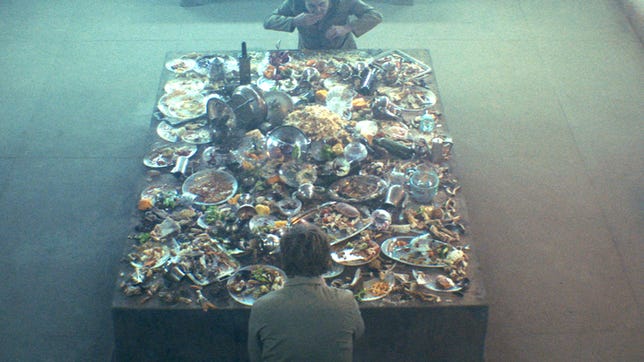Despite this, he looms over the lives of his protests. He only chose those he trusted, those who could endure the darkness he dealt with and, even posthumously, represent. It is these protests, the so-called Bat Family — Robin, Nightwing, Batgirl, and Red Hood — that take center stage in WB Games Montreal’s Gotham Knights. All are haunted by the death of their mentor and father figure. Throughout this third-person open world adventure, players switch between any of the four prior to a mission, battling old enemies — and one new one — of the Dark Knight. While the game does a lot right, there is also a lot that holds it back from realizing its full heroic potential.
The Absolute Best Sci-Fi Movies on Netflix
It can be tough to find quality sci-fi movies on Netflix. Movies like these, especially older classics, tend to be buried beneath the algorithms. That’s where we came in.
We wanted to highlight a few of the best sci-fi gems on the service — like Synchronic — alongside established classics like Men in Black and Starship Troopers. There are also a few newer movies in here like Spiderhead.
All up, there’s a decent amount to watch if you’re a sci-fi fans. Get stuck in.
Read more: The Best Sci-Fi TV Shows on Netflix

Netflix
The Platform is a Spanish sci-fi horror flick with a gruesome high concept. Prisoners in a correctional facility are fed in a very unique way: Folks at the top floor get fed a ludicrous amount of food, folks below get their leftovers. Chaos ensues.
It’s not perfect, but still well worth watching.

Blade Runner: The Final Cut (1982)
Is there a more critically revered science fiction movie than Blade Runner? If there is, I can’t think of it. Maybe the original Alien or The Thing?
Either way, neither of them is currently on Netflix, so Blade Runner is probably the must watch sci-fi movie on the service.

Netflix
Spiderhead is the latest movie from Top Gun: Maverick director Joseph Kosinski, and also stars Miles Teller, who features in that same movie.
Spiderhead isn’t quite on the same level as the superlative Top Gun: Maverick, but it’s still worth watching. Based on a dystopian short story
